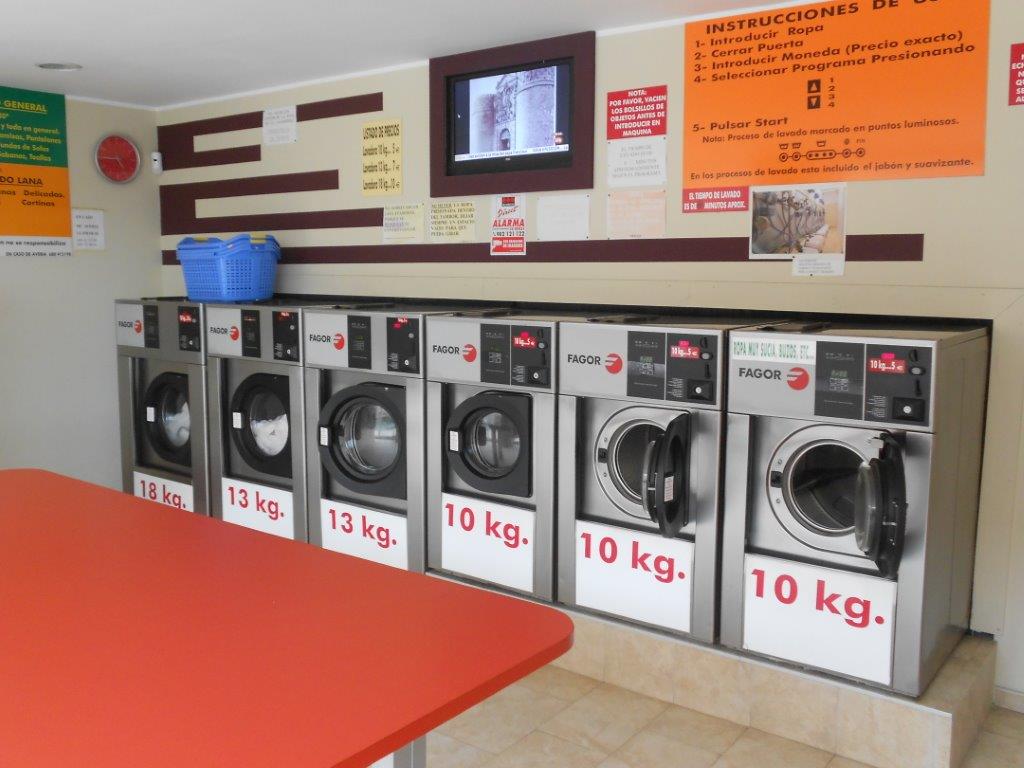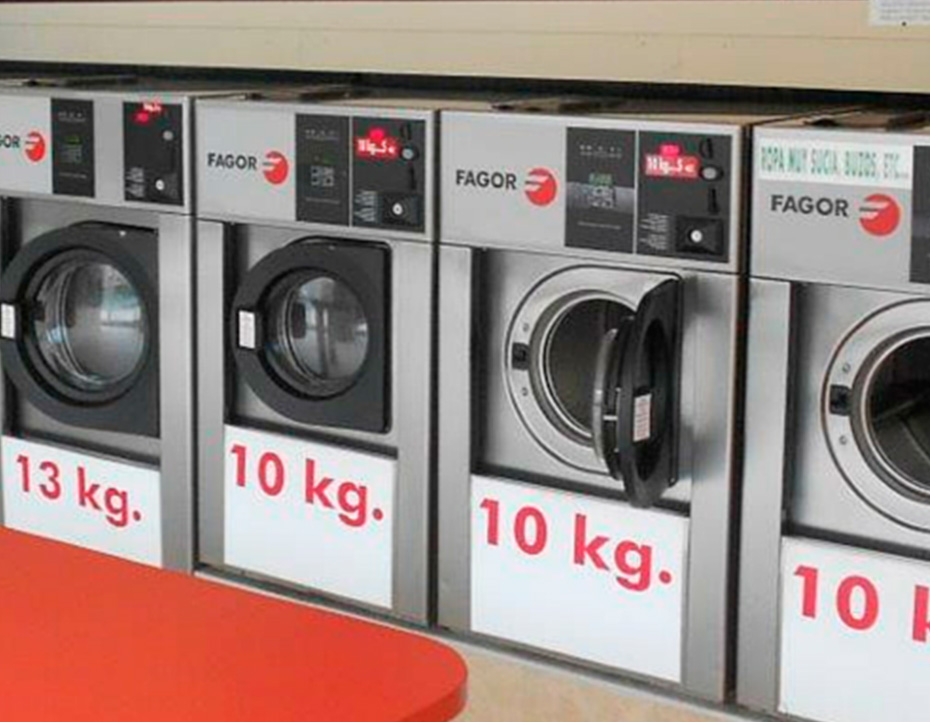Just as changes in social habits have led to people eating less at home, with the use of restaurants, bars, hotels on the rise…, it is also noticeable how these changes have reached the clothes washing sector. Lack of time, rushing, and the highest ever percentage of mobile population requiring certain comforts, are causing industrial laundrettes to also become part of many people’s way of life.
This situation or way of life has been the norm for several years in the United States and in many countries in Europe, and has now gained a foothold in other countries, including Spain. And the business is spreading extremely fast.
At Fagor Professional we have a wide range of machinery for fitting out self-service laundrettes. And we are willing to advise customers planning to set up a business of this type, which, as we will see in forthcoming posts to the blog, can become highly profitable in a relatively short time.

What do you need to set up a self-service laundrette?
Nowadays, the option to fit out an establishment of this nature with automated machines and an automatic payment system removes the need for permanent front-line staff. It is only necessary to go to the premises to open and close the business for the public, and to carry out regular maintenance and cleaning tasks. This helps to significantly reduce the installation’s overheads.
So, to set up a self-service laundrette we need, of course, some premises and the right machinery. And we need to select the payment method to be used in the machines.
Characteristics of the premises:
To start out in this business, we shall begin by setting up a small laundrette. In an area of 40 m2 we can install a self-service laundrette, without needing to carry out major building work.
With respect to the premises, no special licences are required to set up a laundrette, except for authorisation from the owners of the property or neighbourhood association where the business is to be located.
Regarding the water and electricity installations, (or gas where applicable), normal in these premises, an outlet is required for the extraction of steam from the drying machines and the fumes from the gas machines.
The premises should be around 3.5 metres high, to facilitate the installation of the dryers and the extraction pipes.
As regards the location of the premises, it is important that they are easily visible from the street, with large windows or glass panels allowing the interior to be seen. Given the above, proximity to other businesses that complement the offer of services to the customer (shops, restaurants) is also of interest. And another detail to consider is the need for a parking area in the vicinity for the use of customers who arrive in their own vehicles.
The machinery:
The machines which are essential to a small self-service laundrette are washer extractors and dryers. In some establishments which have front-line staff, you may also find ironing and finishing machines. In the case in question, unstaffed laundrettes, we shall focus on washer extractors and dryers.
We go on to list some of the machines that are able to cover the majority of the requirements in small- and medium-sized establishments.
Fagor washer extractors:
o High speed spin: These help to ensure that the residual moisture in the clothes allows us to dry the clothes correctly in the dryer.
o Capacities for 11, 14 and 18 kg, there is a sufficiently wide range of models for this type of premises.
o Hot water operated: The use of hot water models requires the installation of an accumulator to guarantee a sufficiently high input temperature to permit 30-minute wash cycles (which is the average time used in these laundrettes).
Fagor dryers:
o Load capacities of 11 and 16 kg.
o Individual machine and double dryer stack versions. The installation of dryer stacks is of interest because of the space saved (a double dryer stack takes up approximately half the volume of two independent individual machines).
o Gas heated.
Payment system:
The traditional self-service payment system is based on coin slots fitted into the machines themselves. The coin slot is a mechanism that accepts coins or tokens (the latter are purchased in an expending machine if there are no front-line staff), and activates the operating mechanism of the machine in question. Nowadays however, the operating system using automated control via a pay centre is becoming more usual. This system is really just a small coin-operated (or card-operated in some cases) computer, connected to all of the machines installed on the premises, which controls and starts the washer extractor or dryer selected by the customer once they have paid for the machine they wish to use. The pay centre system even permits online control of the laundrette from a remote computer (at the owner’s home, for example).



Follow us